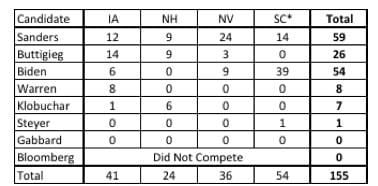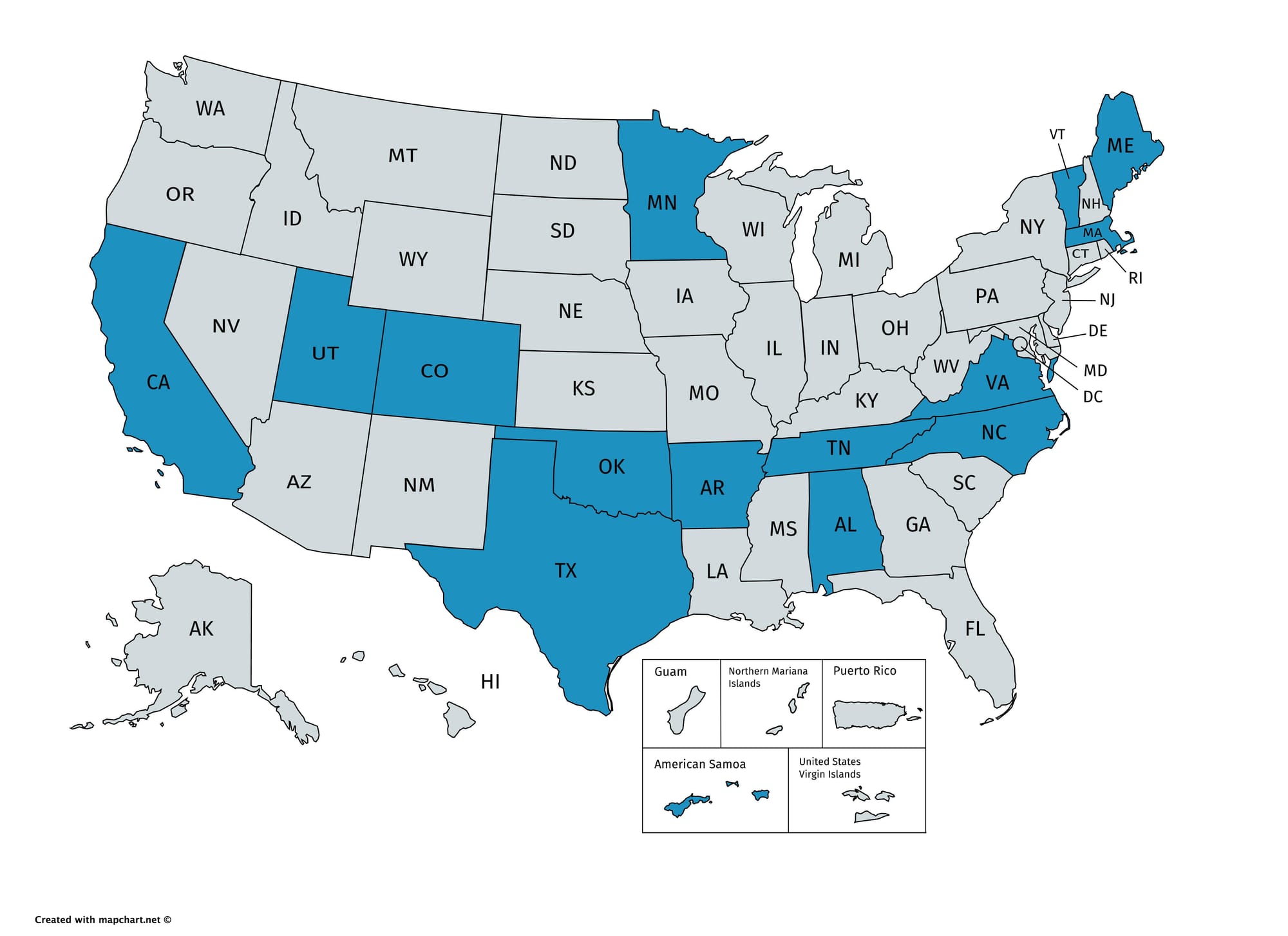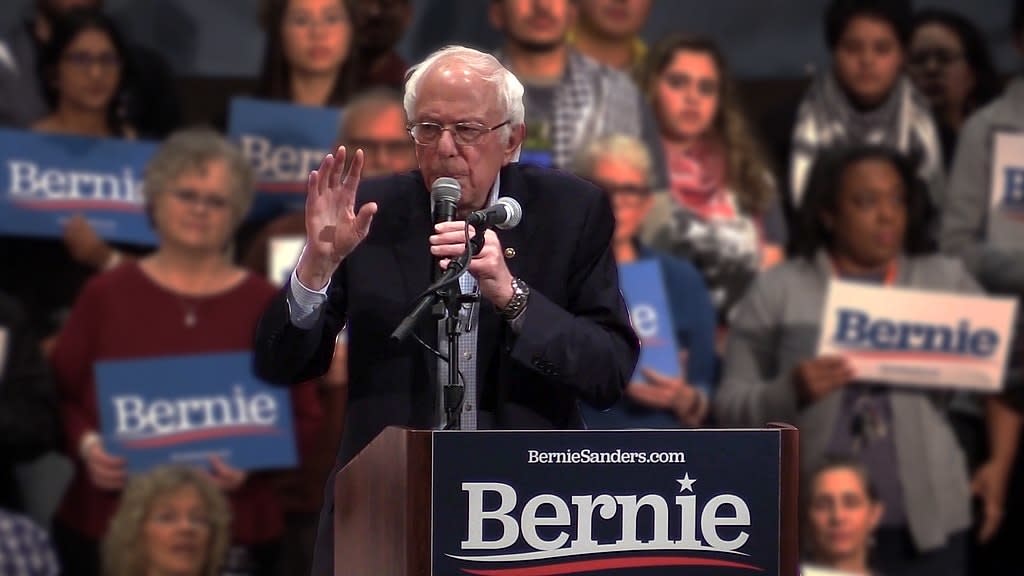
A top tier of candidates has separated from the pack in the 2020 Democratic primary, following a landslide win for Bernie Sanders out west in the Nevada caucus, and a Joe Biden boon at the South Carolina primary a week later.
This pair might appear unsurprising – at the corresponding point last year, Sanders and Biden were among the leading contenders. Yet, their forthcoming battle for the Democratic nomination reflects more than simply fulfilled expectations.
It pits two factional champions against one another. One, a self-described democratic socialist seeking to change the political status quo with a left-wing revolution; the other, an establishment favourite and unwavering moderate looking to get America back on track.
As enthusiasm grows for Sanders and Biden, it fades for others. The field of candidates will narrow over the next few days and weeks – yesterday saw the withdrawal from the race of Pete Buttigieg, the 38-year-old former mayor of South Bend, Indiana – but rest assured: the factional war for control of the Democratic Party is heating up. Super Tuesday, the all-important cross-country battle for victory in no fewer than 14 states, is just a day away, with results sure to impact the state of the race.
The early-voting states
Before we take a look at the upcoming polls on Super Tuesday, let’s check the state of play after the four early-voting states. The table below breaks down the delegates won in Iowa, New Hampshire, Nevada and South Carolina.

Most consistent among the candidates, thus far, is Sanders, with a top-two finish in all four states. Now, close on his heels is Biden, whose strong South Carolina win catapulted his campaign back into contention. Biden, although second in the delegate count, now leads Sanders in the popular vote.
Fading from the forefront were Buttigieg, who traded first and second with Sanders; Elizabeth Warren, who, despite being among the most effective debaters of late, hasn’t won a single delegate since Iowa; and Amy Klobuchar, whose third-place finish in New Hampshire looks set to be a highlight of her campaign.
Meanwhile, Tom Steyer exited the race mere hours after polls closed in South Carolina, and Tulsi Gabbard’s string of poor results indicate that she, also, is doomed to be an “also-ran” in the crowded 2020 field.
The results from Nevada and South Carolina clearly show that a diverse coalition of support from a cross-section of the Democratic base is crucial to victory. The large non-white populations in both these states broke the momentum behind Buttigieg and Klobuchar, but bolstered the support for Sanders and Biden. Warren, on the other hand, simply appears unable to capture significant support from Democratic voters despite scintillating performances on the debate stage.
Ahead of delegate-rich Super Tuesday, such cross-sectional support becomes more important, with diverse states such as California and Texas set to determine who sits atop the heap.
Super Tuesday
Just three days after the South Carolina primary, critical states head to the polls on, without question, the most important day of the primary calendar. Yes, the early states were important – but more to provide much-needed momentum to campaigns and shape the state of the race before Super Tuesday, a feature of presidential primaries since 1980.
Think of it like this: The 155 delegates decided by the four early-voting states serve as appetisers before 1344 delegates are distributed by 14 states (and one territory) on Super Tuesday.

The state of the Democratic race is oddly reminiscent of the 2016 Republican primary. Four years ago, in the also-crowded Republican field, all but five candidates exited the race before Super Tuesday as momentum swelled behind Donald Trump and Ted Cruz. Now, all but seven Democrats have withdrawn, and momentum is clearly behind Sanders and Biden.
Further parallels between the two races are clear. Perhaps most pertinently, establishment Republicans waged a “Stop Trump” movement in 2016, similar to establishment Democrats’ calls for a “Stop Bernie” movement in 2020. For those promoting the latter, it’s worth noting – and, well, who could forget? – that the “Stop Trump” movement failed to halt his ascendant candidacy four years ago.

Make-or-break time
With approximately one-third of all delegates to be decided on Tuesday (California and Texas by themselves combine for 643 delegates), for many flagging candidates it’s make-or-break.
Some candidates will rely on their home states to reinvigorate their campaigns. For Elizabeth Warren, a victory in her home state of Massachusetts is a necessity, while the same is true for Amy Klobuchar and her native Minnesota. Vermont is also in play, yet Bernie Sanders appears set to cruise in his home state, while giving Warren and Klobuchar close contests in theirs.
Other candidates, like Sanders and Joe Biden, will seek to capitalise on their recent electoral momentum.





